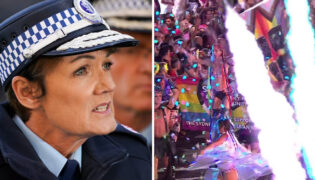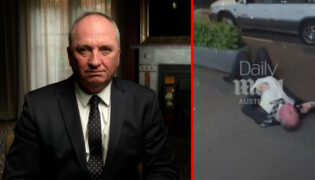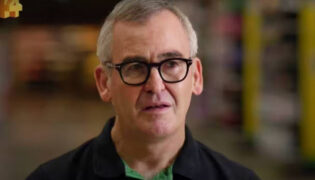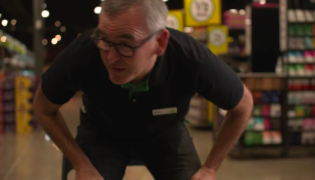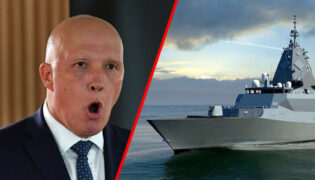[Edition 27] Putin was not a quintessential Russian politician (his official biography at the Kremlin web-site, for example, lists him as being a “moderate drinker”), though as a young man he was spotted early on for his ability to blend in, not make waves and take minutes without engendering controversy.

Vladimir Putin sports his trademark smile. |
[Edition 27] Vladimir Putin, the President of Russia and former head of the FSB, Russia’s internal security service that replaced the KGB, has been declared missing, presumed drowned, in the wake of the Kursk disaster.
Although his achievements were many and varied, it is in his capacity as chief executive during the ill-starred rescue attempt of the 118 submariners trapped in the nuclear-powered submarine, the Kursk, that he will always be remembered. During the catastrophe, the Russian public was captivated with his attention to detail and drive to become personally involved in the increasingly frantic efforts of the Russian navy. When he heard of the tragedy, the President was holidaying on the shores of the Black Sea.
Putin immediately ordered that his sea-side holiday be deferred in favour of a rigorous fact-finding mission, investigating conditions in and around the ocean – to be held on the shores of the Black Sea – where he remained for several further days, examining local surf conditions and testing Russian-made swimwear in the gruelling, sub-tropical waters. It was in these treacherous waters that authorities believe the President met his end.
Putin was not a quintessential Russian politician (his official biography at the Kremlin web-site, for example, lists him as being a “moderate drinker”), though as a young man he was spotted early on for his ability to blend in, not make waves and take minutes without engendering controversy.
His reputation as a good chairman and organiser stood him in good stead, although it was his passion for sports and physical fitness that set him apart from the bulk of Russian Parliamentarians and, in fact, the bulk of the Russian population. Putin’s succession was assured when a comedy video made by former President Yeltsin in which Yeltsin pretended to stand down from the Presidency on the last day of the century was accidently aired on Russian television. The resultant “jocularity” scandal, in which Yeltsin was forced from office, was a lesson that Putin learnt well – and one of his first acts in the Kremlin was to re-connect the Government with its traditional strengths of faceless functionism, leadership by those who rose through the ranks of the security forces and the maintenance of at least one war south of the Urals (he chose Chechnya, considered a stable, if uninspired and obvious, choice).
Putin was fondly remembered by his Parliamentary colleagues in a memorial press conference today. Sergei Stepashin (who was his predecessor as Russian Prime Minister described him as “a decent and honest man, dedicated to his sambo (a Russian martial art) and judo, and who enjoyed a passing interest in politics”.
Many also remembered Putin’s tireless work to bring order to the Kremlin, where he organised the first coffee club roster, the first official birthday celebrations for an employee and the first Dress In Something Other Than Grey Friday.
His reputation as a statesman was also recognised (Mikhail Gorbachev recalling a meeting in which US President Bill Clinton described Putin as “no threat to Russian democracy”, if “a bit dull”).

